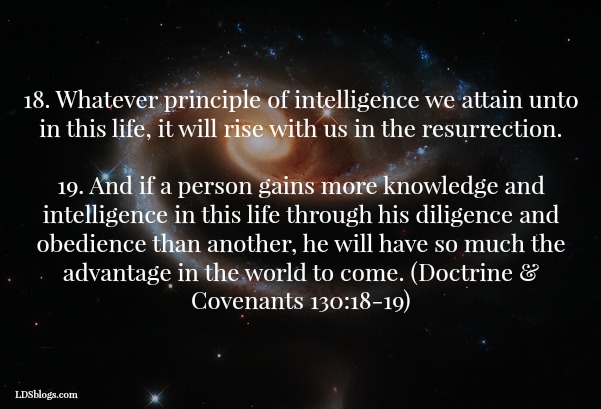My religion consists of a humble admiration of the illimitable superior spirit who reveals himself in the slight details we are able to perceive with our frail and feeble minds. That deeply emotional conviction of the presence of a superior reasoning power, which is revealed in the incomprehensible universe, forms my idea of God.
—Albert Einstein
Humans have a very limited perception of reality. We see with such small minds. Our vision is only as large as our understanding. We seem incapable of grasping anything that we can’t prove.
Albert Einstein also said this:
I’m not an atheist, and I don’t think I can call myself a pantheist. We are in the position of a little child entering a huge library filled with books in many languages. The child knows someone must have written those books. It does not know how. It does not understand the languages in which they are written. The child dimly suspects a mysterious order in the arrangement of the books but doesn’t know what it is. That, it seems to me, is the attitude of even the most intelligent human being toward God. We see the universe marvelously arranged and obeying certain laws but only dimly understand these laws. Our limited minds grasp the mysterious force that moves the constellations. —Albert Einstein
As we move through our lives, make choices, have experiences, and work through adversity, we gain tiny bits of knowledge to fit into our mysterious puzzle of understanding. Just like a jigsaw puzzle, the pieces don’t make sense at first. As we add pieces to the puzzle, the picture begins to form. What was once a small solid black line on a purple splotch is now the stem of a purple flower, and a tiny red oval with a black dot is now one-half of a lady bug. Our minds seem to expand with each piece we fit into the puzzle.
Our mortal minds want to prove everything. We shun the unknown and pretend it doesn’t exist. If we can’t see the completed puzzle, we insist the whole picture is bogus when the real problem is that there are still missing pieces to be found.
The hard thing is that we will never find all of the pieces to the puzzle in this life. We aren’t supposed to find them. That’s where faith comes into play. We have to have faith that the puzzle can be completed. We need faith that the pieces are within our grasp. Part of that faith needs to be centered on the fact that we won’t be able to touch some of the pieces in this lifetime. Our mortal minds are not equipped to handle the information. We are not wired with the right kind of circuits in mortality for immortal eternal understanding.
The Superior Spirit (God) has given us just enough puzzle pieces to test our faith. Our frail and feeble mortal minds can’t comprehend the vastness of eternity. Faith is required to continue to fit pieces together all the while knowing that we will leave this earth before seeing the completed picture. Acquiring knowledge is not just an earthly experience; it is an eternal one.
18. Whatever principle of intelligence we attain unto in this life, it will rise with us in the resurrection.
19. And if a person gains more knowledge and intelligence in this life through his diligence and obedience than another, he will have so much the advantage in the world to come.
20. There is a law, irrevocably decreed in heaven before the foundations of this world, upon which all blessings are predicated—
21. And when we obtain any blessing from God, it is by obedience to that law upon which it is predicated. (Doctrine and Covenants 130:18-21)
I love the fact that God’s laws require obedience before the blessing of further knowledge. It is the obedience that tests our faith and makes us grow. God’s “superior reasoning power,” as Einstein put it, has created the perfect classroom. A good professor doesn’t just lecture; he challenges his students to think. By requiring faith and obedience, Heavenly Father is stretching our minds and helping us see eternal principles a glimpse at a time.
For he will give unto the faithful line upon line, precept upon precept; and I will try you and prove you herewith. (Doctrine and Covenants 98:12)
I have loved jigsaw puzzles since I was a very small child—almost as much as I have loved thinking about the mysteries of God. They go hand in hand, don’t you think? My challenge is to never tire of learning—never stop looking for missing pieces of knowledge and understanding. Complacency and laziness have no business in the classroom.
As God “reveals himself in the slight details we are able to perceive with our frail and feeble minds,” I hope we are paying attention. Daydreaming never had a place in the classroom either. Heavenly Father is a “Superior Spirit” who knows the end as well as the beginning. He is our Eternal Professor of truth, and His Son is His Eternal Teaching Assistant. Our education is what we make of the experience of the mortal classroom called life.
About Tudie Rose
Tudie Rose is a mother of four and grandmother of ten in Sacramento, California. You can find her on Twitter as @TudieRose. She blogs as Tudie Rose at http://potrackrose.wordpress.com. She has written articles for Familius. You will find a Tudie Rose essay in Lessons from My Parents, Michele Robbins, Familius 2013, at http://www.familius.com/lessons-from-my-parents.
Twitter •







